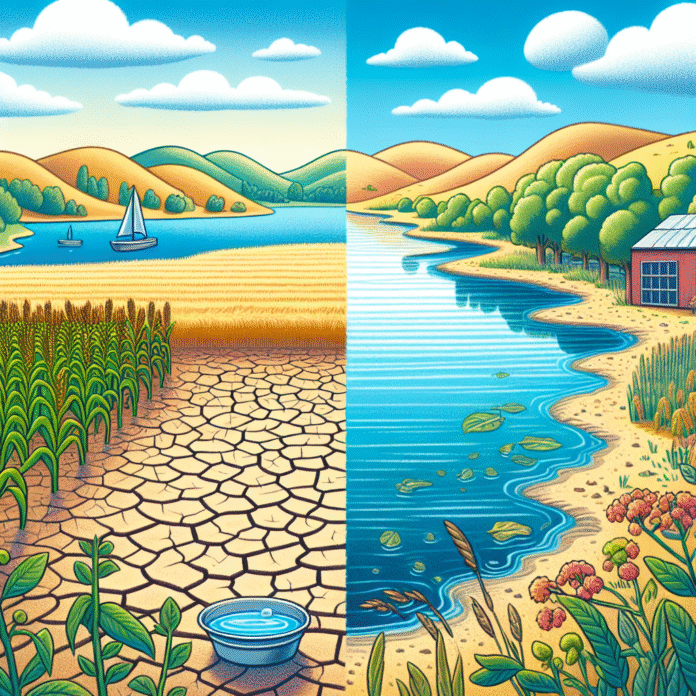Declining Water Resources Impacting Agriculture
The Declining Freshwater Resources: A Growing Concern for Agriculture
The availability of freshwater on Earth is rapidly diminishing, with significant implications for various ecosystems and human activities, particularly agriculture. Water stored in soil, lakes, and rivers is becoming increasingly scarce due to factors such as climate change, population growth, and unsustainable water management practices.
Impact on Agriculture
This decline in freshwater resources poses a serious threat to farming, as crops rely heavily on adequate water supply for growth and yield. Farmers are facing challenges such as droughts, reduced irrigation capabilities, and competition for water from urban areas. The decrease in soil moisture not only affects crop production but also impacts soil health, leading to decreased fertility and increased susceptibility to pests and diseases.
Climate Change and Its Role
Climate change exacerbates the water crisis by altering precipitation patterns and increasing the frequency of extreme weather events. Regions that once enjoyed reliable rainfall are experiencing prolonged dry spells, while others face the risk of flooding. These unpredictable weather patterns complicate water resource management and threaten agricultural sustainability.
Solutions and Adaptive Strategies
To address the dwindling water supply, farmers and policymakers are exploring various solutions. Implementing water-saving technologies, such as drip irrigation and rainwater harvesting, can significantly enhance water efficiency in agriculture. Additionally, promoting sustainable farming practices, such as crop rotation and cover cropping, can improve soil health and increase its capacity to retain moisture.
In conjunction with these strategies, investing in research and development of drought-resistant crop varieties can help mitigate the impacts of water scarcity. Policymakers must also prioritize sound water management policies that balance agricultural needs with conservation efforts to ensure the long-term availability of this vital resource.
Conclusion
As the Earth’s freshwater resources continue to dwindle, the agricultural sector must adapt to the changing landscape. By embracing innovative practices and fostering collaboration between farmers, scientists, and government officials, we can work toward a sustainable future where food production is resilient to water scarcity challenges. The time to act is now, as the health of our planet and the future of our food systems depend on it.


